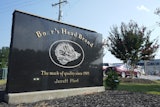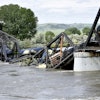Safety in the workplace is important in every industry, especially in manufacturing, where the dangers of a lapse resulting in serious injury or death are even more significant.
To truly appreciate the importance of workplace safety, let’s go through a few of the consequences of falling short in this regard and how to avoid common snafus.
Inflated operational costs
It might seem callous to talk about the business implications of poor workplace safety policies, but they are undeniably significant.
If workers are injured and unable to fulfill their duties, then this will hurt productivity, as well as cause an increase in the expense of insurance and healthcare, on top of the possibility of the organization being liable for compensation payments.
Likewise, injuries and accidents in manufacturing will invariably disrupt the smooth running of mission-critical processes and potentially cause downtime that can quickly rack up millions in additional costs.
Poorly trained employees
If your workplace culture is not safety-oriented, then the chances are that employees will not receive the training opportunities they require to work safely and avoid risks themselves.
This is particularly relevant for supervisors and safety managers, who need a solid training foundation at the start of their careers and need frequent upskilling and retraining regularly to keep pace with changing standards and solutions.
For example, the Institution of Occupational Safety and Health (IOSH) has courses specifically targeted at those responsible for orchestrating employee teams.
Taking an IOSH managing safely course demonstrates that people at every stratum of a manufacturing business have to be up to speed with best practices and procedures.
Reputational damage
A manufacturer’s reputation can stand or fall based on its safety record. If your history is squeaky-clean and you take safety seriously, then partners and consumers will have no reason to question your integrity.
If you are prone to safety mishaps or outright disasters, then your entire brand can be tarnished forever.
Again, this will cost you in the long term, so even if there is a price to pay to improve safety standards on-site, it will be dwarfed by the expense of having to recover from reputational damage after a catastrophe.
Lack of worker loyalty
Workers who feel safe will be more likely to stick around in their roles for longer, which is good for employers because they don’t need to spend as much money on recruitment.
On the other hand, if you are suffering from higher rates of worker turnover because you are not meeting expectations in terms of safety, this is yet more money down the drain unnecessarily.
Product problems
When workplace safety is sidelined, manufacturers could end up with the items they are making being damaged or destroyed.
This is worse still if the damage is not noticed, and the product in question ends up in the hands of a customer, who will be thoroughly disappointed in the quality of what they have received.
Even if the products themselves are free from harm, the valuable equipment and machinery involved in production could be taken out of action or be subjected to excessive wear and tear, which increases maintenance costs and perhaps necessitates early replacement.
Legal fallout
There are national and international standards for workplace safety to protect employees from irresponsible employers.
Should these standards not be met, and accidents result, businesses can find themselves in serious legal hot water.
In short, the financial and human costs are not worth cutting corners when it comes to workplace safety.






















